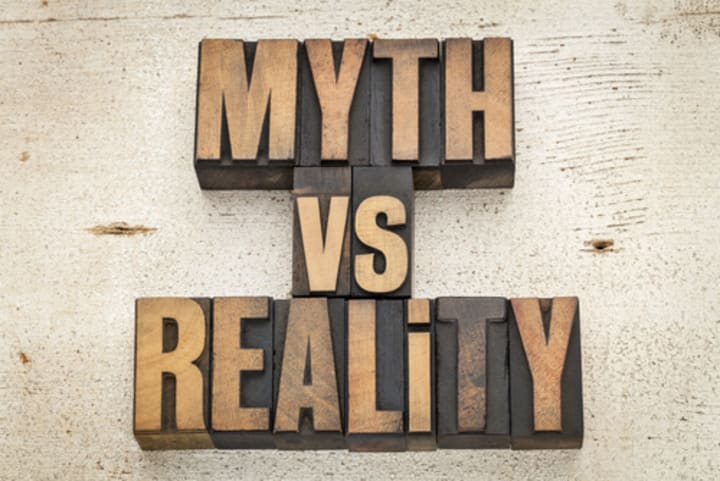Exploring the Ancient Alien Theory
Revisiting Human History through the Lens of Extraterrestrial Creation
When delving into the annals of history and the significant events that have shaped our world, we often find ourselves relying on the interpretations of great writers, scholars, and archaeologists to uncover the truths behind pivotal moments. However, as the digital age transforms our access to information, the certainty of historical accounts becomes increasingly vulnerable to reinterpretation.
In this article, we explore a provocative theory that challenges our conventional understanding of human origins. Could it be possible that our species wasn't born on Earth, but rather, we are the result of a deliberate creation by an extraterrestrial civilization? We will delve into the enigmatic concept that proposes humans as the product of alien design, and its implications for our perception of history and existence.

In an era marked by the proliferation of the internet, social media, and the manipulation of historical narratives, the once steadfast foundation of history is now subject to revisionist narratives championed in the name of specific agendas. The ease of disseminating information and stories has introduced a potential for misinformation, leading us to question how we navigate our past while charting our future. As we investigate this audacious theory, we must discern where fact and speculation intertwine, and ponder the possible influence of extraterrestrial beings on the human story.

Scientific communicator and astrophysicist Carl Sagan, along with his colleague Joseph Chokovsky, set the stage for the exploration of extraterrestrial involvement in human history back in 1966. Their book, Intelligent Life in the Universe, proposed that the legends of ancient civilizations might contain kernels of truth about contact with non-human intelligences. Sagan's academic journey, from his degrees in physics and astronomy to his controversial comments, piqued the interest of those questioning our terrestrial origins.
Another pioneer in the realm of ancient alien theories was Zecharia Sitchin. Born to a Jewish family in Baku, Sitchin's writings, particularly his Earth Chronicles series, ignited global fascination. His core premise revolved around the Anunnaki, a god-like alien race originating from the mysterious planet Nibiru. Sitchin's interpretation of ancient Sumerian texts suggested that the Anunnaki engineered humans for labor, intertwining technology, myth, and human evolution.

The exploration of ancient alien theories delves into rich mythologies and historical texts. The Sumerians, one of the earliest civilizations, left behind inscriptions that some interpret as evidence of extraterrestrial contact. Claims of star maps on Sumerian tablets and references to advanced knowledge not possible in their era challenge conventional narratives. The Royal Library of Ashurbanipal offers tantalizing hints, such as a tablet pinpointing Jupiter's orbit with surprising accuracy.
Critics abound, highlighting mistranslations, scientific skepticism, and limitations in evidence. As these theories spark spirited debate, writers like Graham Hancock propose alternate narratives. Hancock's assertion of an advanced Ice Age civilization imparting knowledge to ancient societies challenges mainstream thinking. While dissenters question his methods, Hancock remains resolute in offering alternative interpretations of our past.
Final Thoughts: Beyond Myth and Mystery
In a world inundated with information and alternative viewpoints, our understanding of history is a continuous quest for truth. The allure of the ancient alien theory lies in its capacity to stir our curiosity and challenge the established narratives that have shaped our identity as a species. As we grapple with the profound implications of this theory, we find ourselves at the crossroads of myth and reality, confronting the mysteries that have perplexed human civilization for centuries.
The concept of human origins is a cornerstone of our self-perception, woven into the fabric of our cultures, religions, and sciences. Delving into the idea that our existence might have extraterrestrial origins is not merely a speculative exercise; it's a catalyst for reimagining our place in the universe. Ancient texts and artifacts, once regarded as mere relics of the past, become windows through which we glimpse a potential narrative that transcends conventional boundaries.
The ongoing discoveries of archaeological sites, the decoding of enigmatic inscriptions, and the continuous march of technological progress all contribute to the ever-evolving landscape of historical exploration. In our quest for answers, we're faced with a duality — the pursuit of empirical evidence alongside the preservation of cultural and spiritual significance. Balancing these aspects requires a delicate dance between skepticism and open-mindedness, between the empirical and the speculative.
Whether we arrived on Earth as cosmic pioneers, seeded by an advanced civilization from another world, or emerged from the ancient cradle of our planet, the journey to deciphering our true origins is, at its core, a journey of self-discovery. It compels us to question our assumptions about the past and embrace the enigmatic possibilities that lie beyond the horizons of our understanding.
The ancient alien theory extends a tantalizing invitation to view the story of humanity through a new lens, to challenge the boundaries of what we thought was possible, and to stretch the limits of our imagination. In the end, it is not just about unraveling the past, but about redefining our relationship with the universe and our place within it.
As we navigate the uncharted waters of historical exploration, let us remember that the search for truth is not confined to isolated moments in time but is a continuous journey that unfolds as we grow, evolve, and expand our intellectual and cultural horizons. Whether we find evidence to support the ancient alien theory or not, the act of questioning, probing, and seeking is what drives us to expand our knowledge and deepen our connection to the intricate tapestry of existence.
Regenerate
About the Creator
BossFactor
I'm BossFactor , a captivating explorer of ideas, an avid seeker of knowledge, and an illuminating storyteller in filmmaking , Article writing, and as a full stack web developer who bridges the realms of curiosity and intellect.
Reader insights
Nice work
Very well written. Keep up the good work!
Top insights
Easy to read and follow
Well-structured & engaging content
Excellent storytelling
Original narrative & well developed characters
Eye opening
Niche topic & fresh perspectives
Masterful proofreading
Zero grammar & spelling mistakes
On-point and relevant
Writing reflected the title & theme






Comments (3)
Nice
Why do we exist and how did we evolve and why here on Earth? I guess it is just as thrilling to ponder today as it would have been to gaze unto the stars 1,000 years ago? I'm not sure if we are any closer into finding answers than any other previous generation, but we love to speculate and formulate hypotheses and have fun doing it as humans. You may also enjoy the following: https://vocal.media/wander/unearthing-the-mystery Thanks for sharing.
My research process in creating this content has gained me so much knowledge. Do let me know what you think about this info.